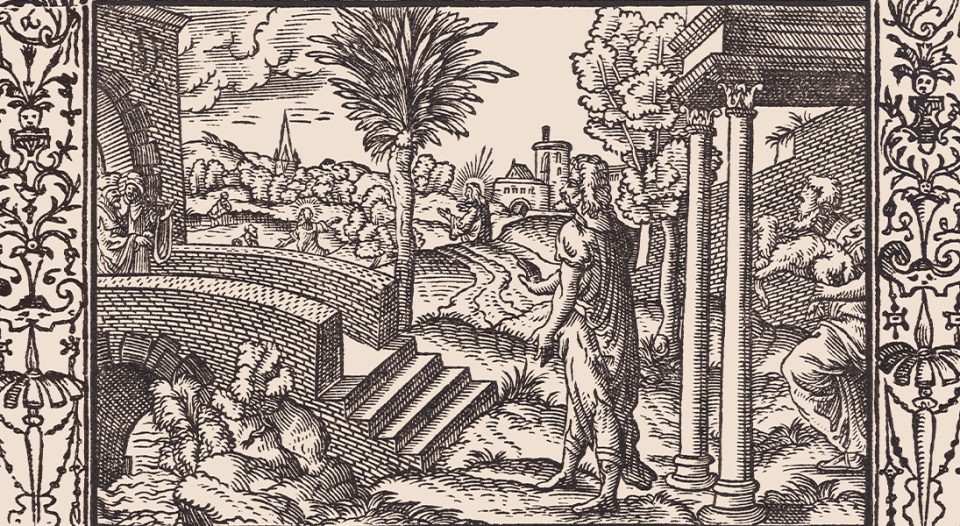Lectionary blog for Nov. 16
23rd Sunday after Pentecost
Malachi 4:1-2a; Psalm 98;
2 Thessalonians 3:6-13; Luke 21:5-19
My family recently celebrated my birthday. I was really looking forward to it—and it was great. Nothing crazy: I took my kids to school, I worked, I met with my book group, then I opened cards with my wife and the kiddos before bedtime. I looked forward to a day, and then it happened. Little did I know, however, that there would be another day, less than a week later, when I would take the day off work and go on an all-day date with my wife for an after-birthday celebration. We wrote together in a library! We went for a city walk! We found and bought a signed copy of a Jimmy Carter book! (My wife used to work for President Carter.) We had Jordanian food for lunch! I didn’t even know to look forward to this perfect day, after having already had a fun actual birthday. The lectionary texts this week insist that God’s people should plan and look forward to a day that they know will happen.
In Malachi, a day is coming, and its heat will be multivalent. For the arrogant and those committed to evil, that day will be like a burning furnace that sets them ablaze. Those who have committed injustice will be consumed as if dried plants, being left without roots or branches. One chapter earlier than our lectionary reading, Malachi has gotten specific about what has so angered God. People are practicing sorcery (cheating on God), cheating on their spouses, swearing falsely (cheating justice), cheating their employees out of fair wages, oppressing the widow and the orphan (cheating the marginalized) and cheating the foreigner out of justice (Malachi 3:5-6). The day of God’s appearance will be a consuming fire to those who cheat others of justice and loyalty. This is good news!
And there’s more good news here too. For those who fear God’s name—which here only means the people who act decently toward neighbors because God commanded it—the sun of righteousness will rise. The same blazing fire that burned those committed to idolatry of self and injustice toward others will be a healing beam for the righteous.
In the Northern Hemisphere, we are headed into winter. Think about the first beautiful day of spring when the flowers are blooming and you don’t need your jacket anymore (or that midwinter vacation to warmer climes). That sun hitting your face and chasing the winter blues away is what this Scripture is talking about. That is the day that’s coming for those who practice the neighbor-love that God insists on. This is also good news!
The lectionary texts this week insist that God’s people should plan and look forward to a day that they know will happen.
Jesus nuances and refines the notion of the coming cataclysmic day. Jesus’ disciples were marveling at the beauty of Herod’s temple, built as a sort of cynical public bribe to get the people to support his oppressive reign. It worked for some, but not for Jesus. Jesus told his disciples that the day was coming in which none of the great stones would be left on each other. When the disciples asked when that day would be, Jesus gave some descriptions of the run up to the day in 70 C.E. when the temple was destroyed by the Romans.
But then Jesus did something very interesting. He started talking about what would happen before that day. The disciples would face persecution. They would face religious and civil trials. They would be betrayed by family and friends. And some (most?) of them would be murdered, as Jesus himself was. And somehow, this is also good news.
Persecution—honest-to-God persecution, not the loss of the ability to persecute others—is good news because it would offer the disciples opportunities to testify (Luke 21:13). They would have the opportunity to testify that religious aggrandizement of large buildings paid for with money raised from oppression and bribery does nothing for God’s kingdom. They would have the opportunity to testify that Jesus’ way is a way of nonviolence. The only time Jesus told his disciples to pick up a sword was so that he could tell them to put the swords down in the face of an armed mob (Luke 22:35-53). The disciples would have the opportunity to testify that not collaborating with empire is worth their lives, that the wages of sin is death, but eternal life is a free gift of God through Jesus the messiah.
So, instead of fretting about “that day,” Jesus and Malachi urge us to think about what we will do “this day.” Will we cheat others and oppress foreigners? Or will we look for opportunities to testify about the way of Jesus being a better path than oppressive power and corrupting wealth?






